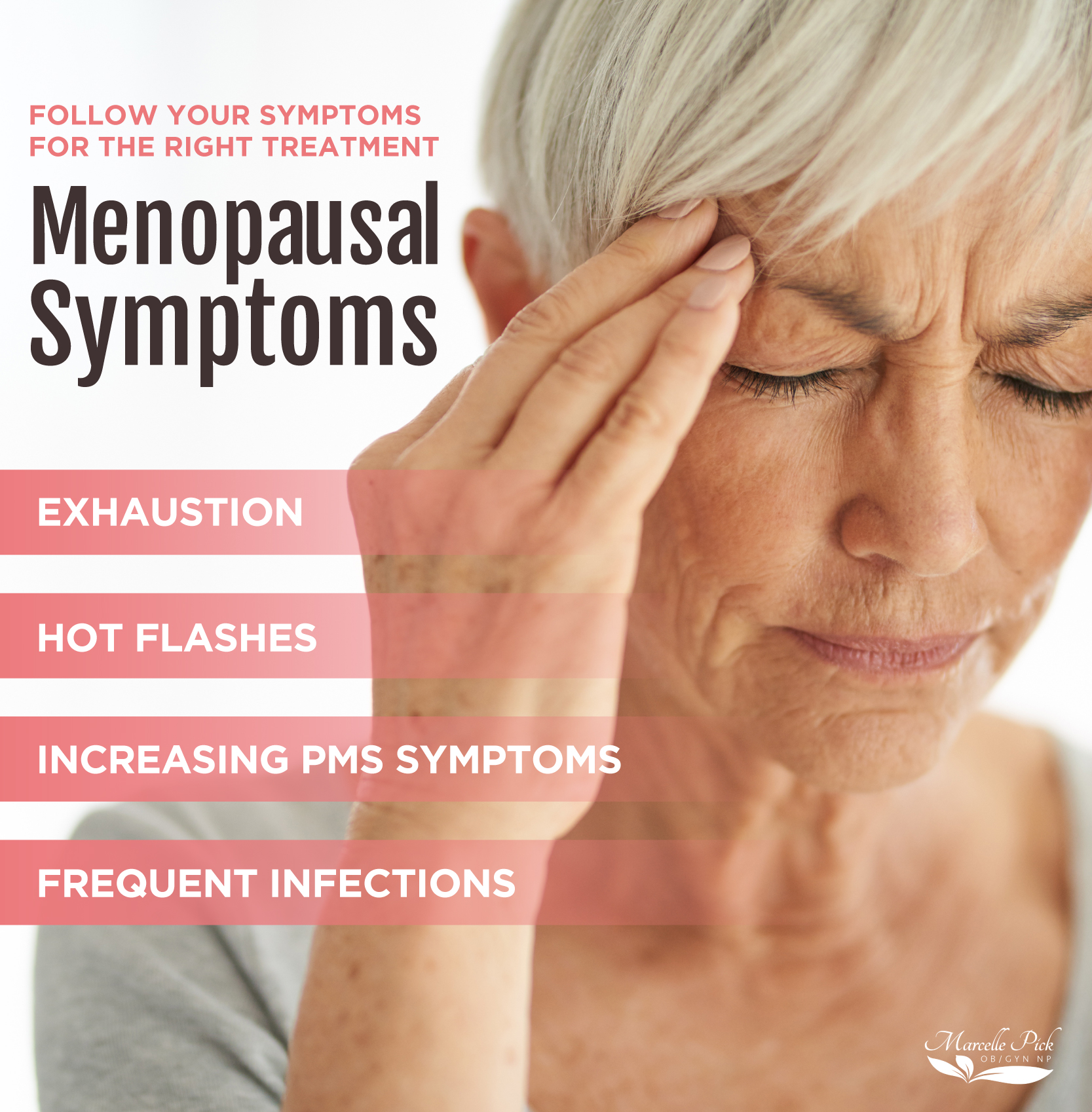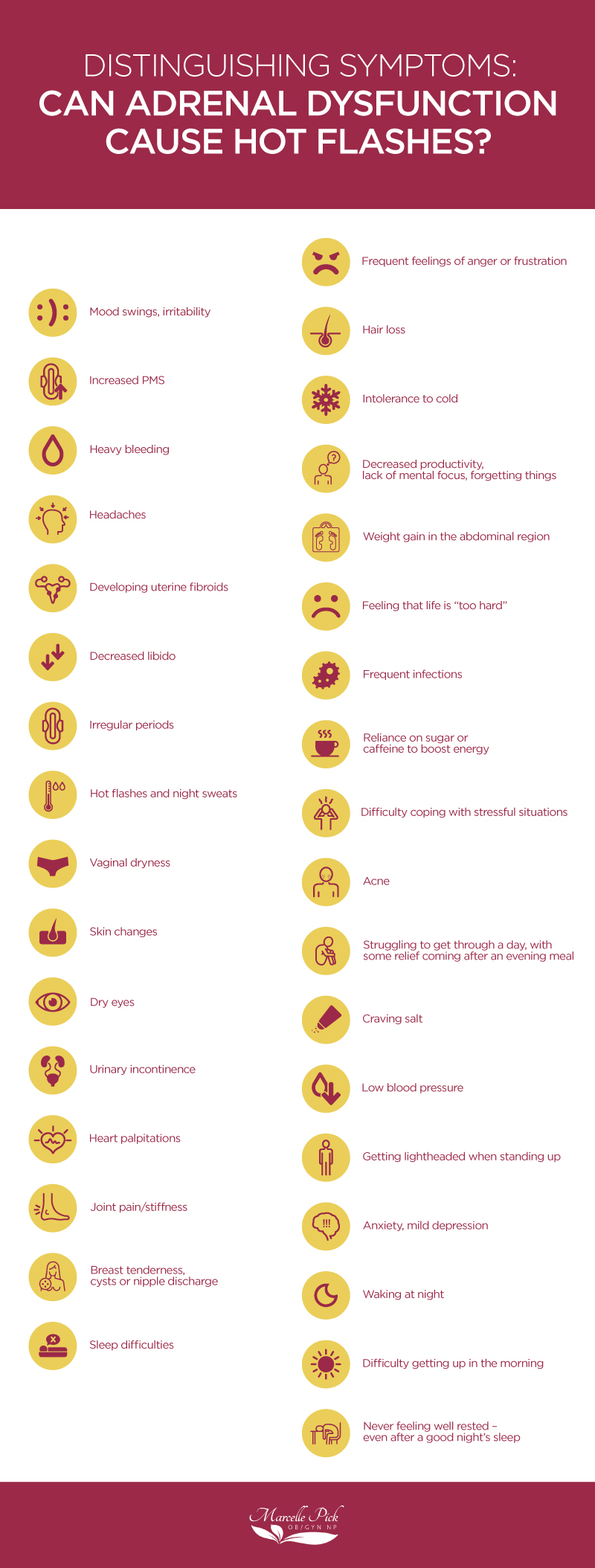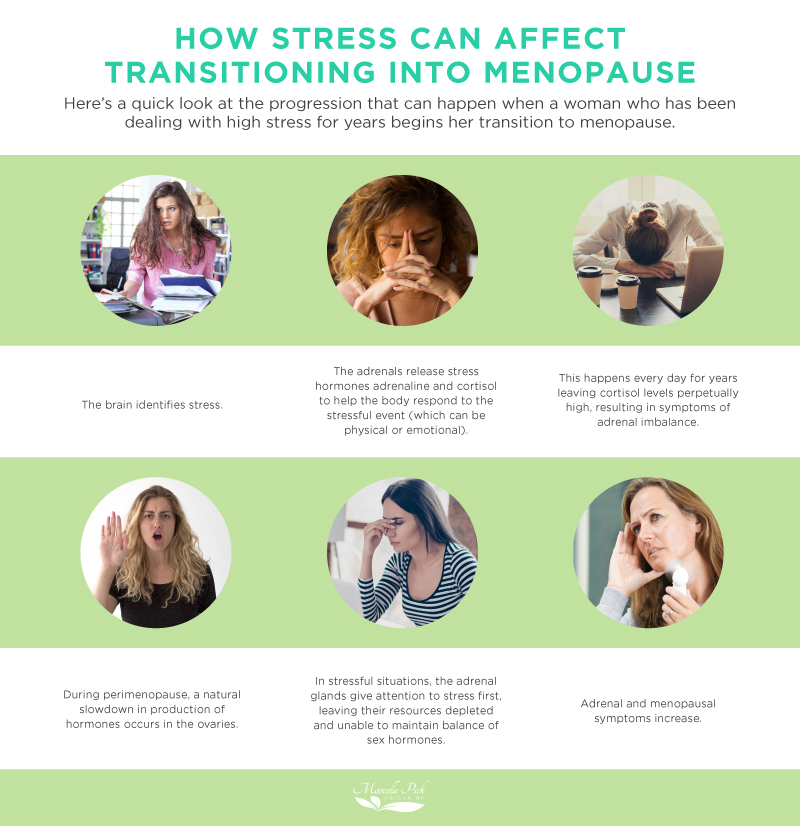It was one of the most important days in her son’s life – college graduation – and Amy didn’t know if she would be able to attend. She was bombarded with symptoms that she just didn’t understand – severe exhaustion, night sweats, and debilitating anxiety. Not only that, but she’d gained weight and couldn’t fit into any of her dresses that were appropriate for such a momentous occasion. So often these days, life just seemed to be too much to handle. If Amy was going to make it, she’d have to work late to tie up loose ends, then drive the four hours and sleep in an unfamiliar bed for several days. Just the thought of it left Amy feeling even more overwhelmed and anxious.
When Amy came to see me, I gave her hope. But she was confused. Her symptoms sounded like both menopause and adrenal fatigue – how could she know which supplements would be most helpful, and what other changes she could make to start feeling better? I asked her which symptom was impacting her the most. Without hesitation, she chose fatigue. “I think I could handle everything else if only I could get some sleep!” she said.
Is your situation like Amy’s? Do you have symptoms that pop up in many different lists? Are you struggling to figure out if your issue is hormonal, adrenal or even something else? If so, I can help.
Hormonal imbalance caused by menopause and adrenal dysfunction can present with overlapping symptoms, making it really tough to determine which is behind the symptoms you’re desperately trying to relieve. Let’s start by comparing the symptoms of each and then we’ll delve deeper into the adrenal fatigue and menopause connection.
Distinguishing Symptoms: Can Adrenal Dysfunction Cause Hot Flashes?
When symptoms hit out of nowhere, it can be startling and confusing. Are you in early menopause? Is there something wrong with your adrenal glands? So much of what lies beneath each of these issues is the same that it makes sense that the symptoms would overlap. Ultimately, each is intricately connected to the balance – or imbalance – or hormones. So, then, how do you know what you’re dealing with? Take a look at this side by side list of adrenal fatigue symptoms and menopause symptoms for easy comparison.
| Common symptoms of adrenal imbalance | Common symptoms of menopause |
|---|---|
|
|
Do you find that one group of symptoms is more present than the other? Although there are some similarities and overlapping of symptoms, laid out like this, they really do look different. But the underlying issue might be the same: an imbalance in essential hormones. Sometimes, I suggest beginning with support of the adrenal glands and dealing with stress. Often, I have found, offering this support will also balance out the sex hormones and level out the symptoms of menopause as well!
Adrenal Fatigue and Menopause Connection
If adrenal imbalance is related to stress hormones, and menopause to sex hormones then how are the two connected? Don’t the ovaries produce the sex hormones like estrogen, progesterone and testosterone, while the adrenal glands produce cortisol? Well, yes, but the endocrine system is a little more complex than that.
Where the Connection Starts
It all starts in the brain. The hypothalamus and pituitary areas of your brain control the amounts of hormones released by the thyroid, ovaries, adrenal glands and other endocrine tissues. Environmental stimuli, along with internal feedback from throughout your body, sends information to these parts of the brain. When the need for a specific hormone increases, the brain can process and respond to that information.
Remember Amy? Her stress challenges began many years prior, when her son was diagnosed with asthma at a young age. Compounded by the challenges of a night job, the stress in her body continued to build, even when her son’s asthma was under control. Your body can house long-term stress for years and you probably won’t even realize it. But as it does so, there could be imbalances building as your stress response pushes the call for sex hormones aside in your brain as it strives to protect your survival.
A Secondary Connection
The brain is not the only way your adrenals are connected to reproductive hormones. A secondary job of the adrenal glands is to produce and release sex hormones when production in the ovaries slows – which happens as women enter perimenopause. But if your adrenals have been working for years to overcome chronic stress, they simply don’t have the resources left to boost those sex hormones. And that means that adrenal imbalance can intensify your menopausal symptoms – and like Amy, you’ll be left frustrated and confused.
Transition into Menopause with Stress
Here’s a quick look at the progression that can happen when a woman who has been dealing with high stress for years begins her transition to menopause.
- The brain identifies stress.
- The adrenals release stress hormones adrenaline and cortisol to help the body respond to the stressful event (which can be physical or emotional).
- This happens every day for years leaving cortisol levels perpetually high, resulting in symptoms of adrenal imbalance.
- During perimenopause, a natural slowdown in production of hormones occurs in the ovaries.
- In stressful situations, the adrenal glands give attention to stress first, leaving their resources depleted and unable to maintain balance of sex hormones.
- Adrenal and menopausal symptoms increase.
Follow Your Symptoms for the Right Treatment
When you’re dealing with exhaustion and hot flashes, increasing PMS symptoms and frequent infections, it can be difficult to decide which is impacting you more. In this case, I tell women to examine which symptoms are having the most impact on their quality of life. Often, this can point you in the right direction.
For Amy, her fatigue made life almost unbearable, and the anxiety and insomnia only made it worse. For her, then, choosing adrenal support made the most sense. Sure, she had classic menopausal symptoms like night sweats and hot flashes, but she decided to focus on her other concerns and try to balance her cortisol levels first. Ultimately, supporting her adrenal glands allowed her to respond more appropriately to stress. Without the constant cortisol spikes, she could sleep better and her body was more easily able to balance out her sex hormones as a result. For Amy, it was the right choice – but if you find that the hot flashes and irritability are impacting your life more, you may choose to address hormonal imbalances in estrogen, progesterone and testosterone first.
Sorting all of this out may be difficult on your own. I’m here to help!

Choose the Path That’s Best for Your Health
The supplemental programs I offer are specially formulated to target specific issues. Over three decades of clinical practice means I have the experience and wisdom to help you select the right formula for relieving symptoms, supporting your body through stress, and ensuring you have all the nutrients your body requires. Here are just a few of the great supplements I have to offer:
- Sleepless Adrenal Program: If your main complaint is that you are unable to get to sleep or stay asleep, leaving you fighting for energy during the day, this could be the program for you.
- Feeling Tired Adrenal Program. If you find yourself perpetually exhausted, this program might be best suited for your needs.
- Feeling Wired Adrenal Program. If, instead, you are feeling constantly anxious and “wired,” this program could be the best choice.
Menopause Program. If your most troublesome symptom are those more often associated with menopause, consider this program. Because it includes the Adrenal Support Formula, it will also address adrenal imbalance as it levels out your symptoms of menopause.











